8. A Moment of Innocence (1996, Mohsen Makhmalbaf)

There is a certain aura of innocence and beauty that’s characteristic of contemporary Iranian cinema. It is common to find films from that part of the world that take a sympathetic look at characters facing adversity, chasing that which is true and pure, making amends with their past. This is patent is the works of directors like Asghar Farhadi, Abbas Kiarostami, Majid Majidi and Mohsen Makhmalbaf.
In “A Moment of Innocence,” Makhmalbaf takes a look back into his youth to make amends with a police officer he stabbed during a demonstration when he was 17 years old. With a naturalistic take on filmmaking á la cinema verité, this film is part fiction and part documentary, following the director in his search for actors to play him and the policeman, and finally the reenactment.
“A Moment of Innocence” is a delicate and tender film in which a man, tormented by the misdeeds of his youth, feels the need to find forgiveness, turning his guilt into a beautiful work of art that humanizes and reminds us of the weight of our actions.
9. Shame (2011, Steve McQueen)
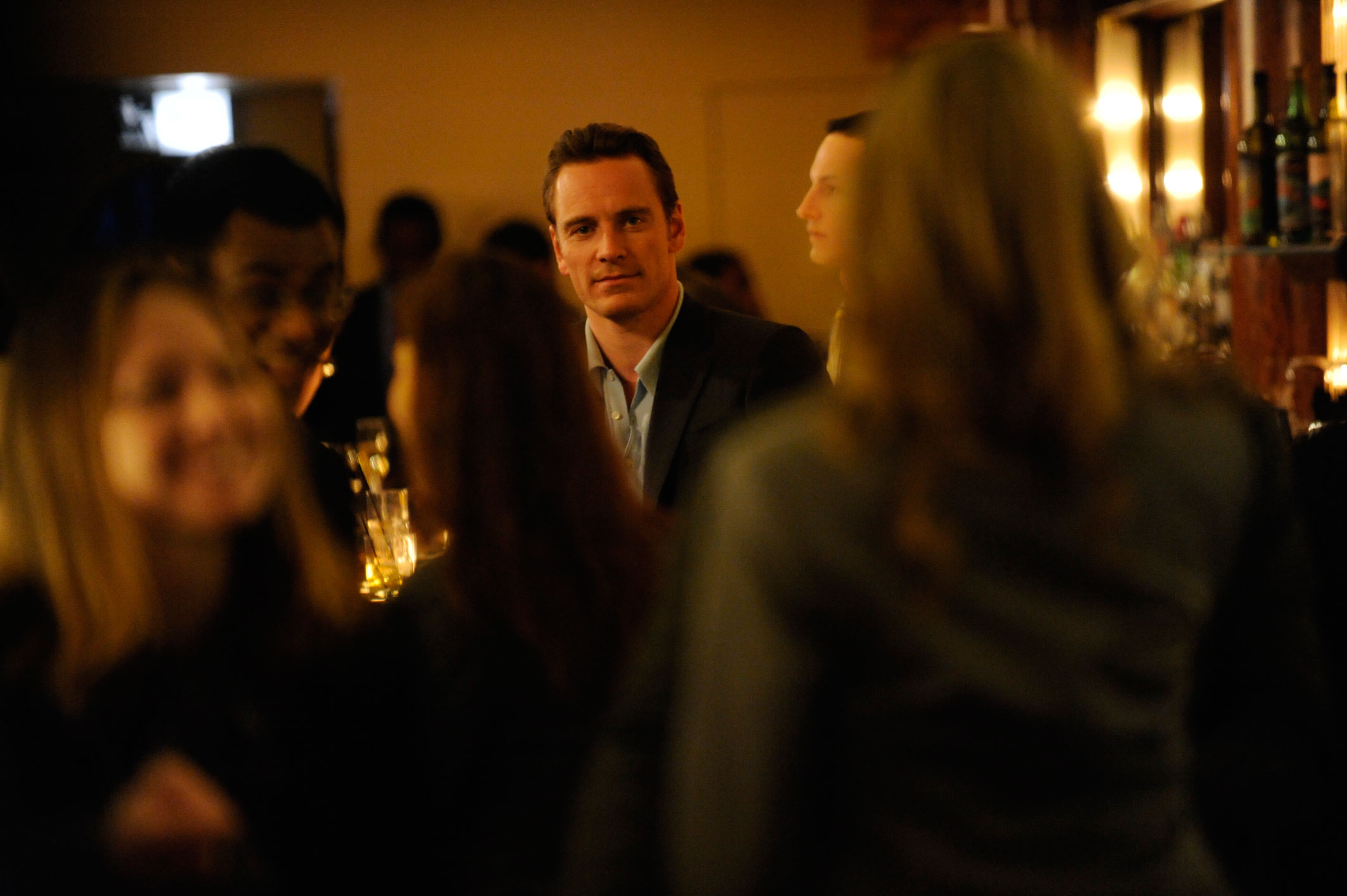
In a similar fashion to the already mentioned “La Pianiste,” “Shame” is a film about the violent consequences of the reunion of two people with different expectations, desires and moral codes. It stars Michael Fassbender as Brandon, a successful businessman who is unable to connect emotionally with a woman, and at the same time is addicted to sex. Things get complicated when Sissy, his sister – played by Carey Mulligan – arrives to his apartment to stay indefinitely.
Tensions arise soon enough, leading to an explosive ending. “Shame” paints a bleak and cold picture of post-capitalist loneliness, showing the detachment and depression common to city dwellers, the way that addictions shape our personalities and our lives, hurting us and those around us.
The past, as portrayed in the film, holds an important place in the development of our personalities, shaping the way we think and the person we become. The genius of “Shame” relies in the way that it brings back the past in order to explain the present; the ever-present shadow of our past decisions, whether good or bad, perpetually looming over our lives.
10. Pickpocket (1959, Robert Bresson)
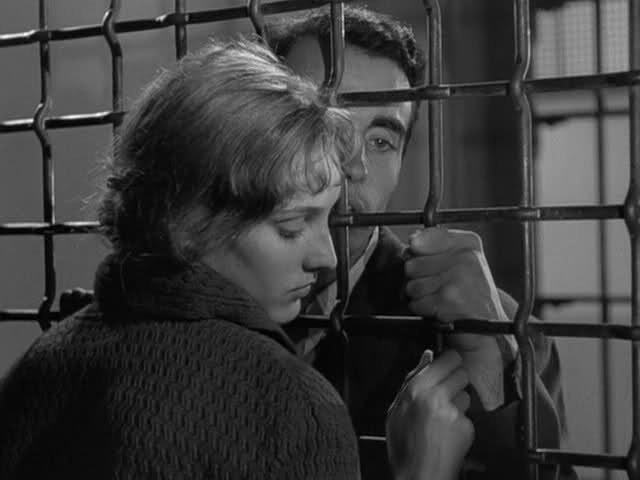
Robert Bresson is one of the most respected and revered figures in French cinema. Admired by directors such as Andrei Tarkovsky, he created a very spiritual and personal cinema in which his characters struggle to find meaning in meaninglessness, purity in decaying environments, to conciliate good and evil.
His style can be defined as intimate and minimalistic, taking away everything that is not essential to what he wishes to express, resulting in films with a sort of monastic simplicity, an asceticism which he used to tell the stories of characters whose great spiritual will is put to the test in an unforgiving and cruel world. “Pickpocket” is one of his most talked about films, and it tells the story of Michel, a man who picks pockets as a hobby. After his mother dies he teams up with a partner, stealing purses and wallets with great skill in the train station.
This is a film about the search for redemption, and about the spiritual solitude we have to face when our decisions and our impulses exile us from the world of people.
11. Saló, or the 120 Days of Sodom (1975, Pier Paolo Pasolini)
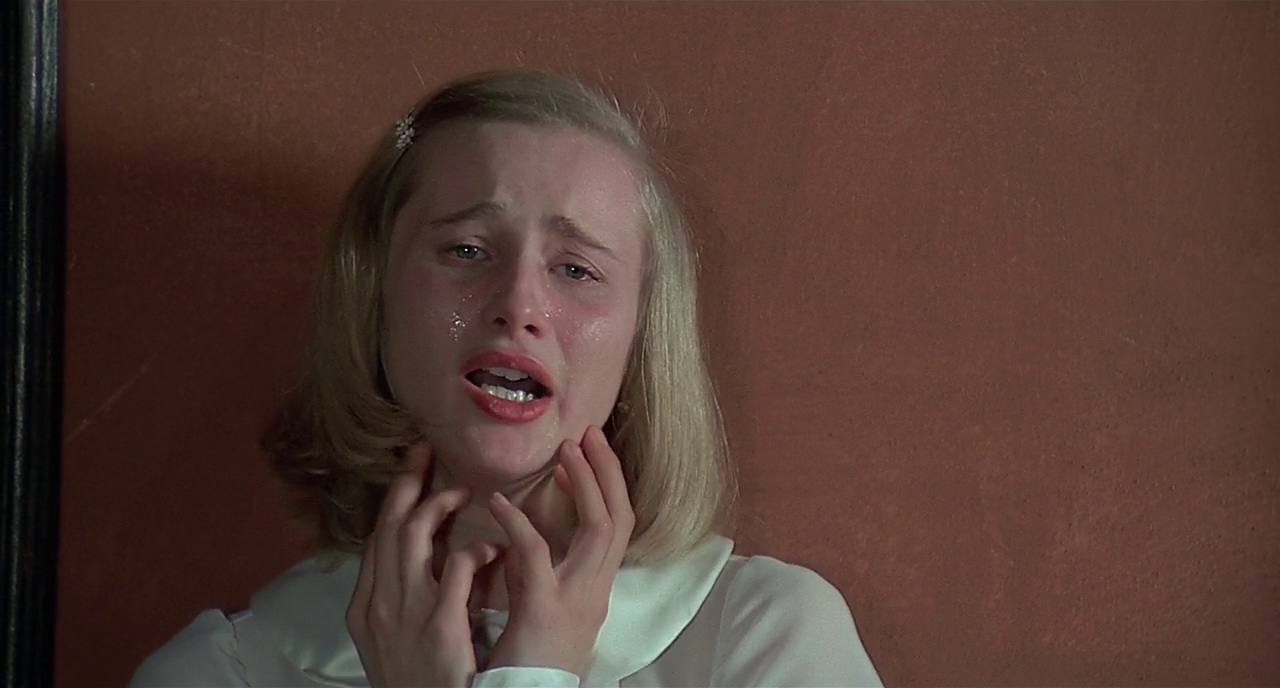
Pier Paolo Pasolini is arguably one of the most polemic and polarizing figures in the history of cinema – and we should not be surprised about that. After all, he was a Catholic homosexual communist who made films that radically challenged the moral and spiritual mindset of his place and time.
A book by Marquis de Sade, an equally polemic figure in the history of art, served to him as the base for what would be his final film (he was murdered in the same year of its release and the murderer was never found). Set in World War II Italy, the film follows the group formed by a bishop, a duke, a magistrate and a president – the head of power of the fascist state. They use their power to kidnap nine girls and nine boys, who are taken to a house in the country where they subject the group to physical and sexual abuse for 120 days.
This is a hard film to watch, filled with disgusting and sickening scenes that harshly criticize the political landscape of 1970’s Italy, making a point in the way we can find twisted pleasure in the torture and abuse of other human beings once power has completely corrupted us.
12. Chinatown (1974, Roman Polanski)
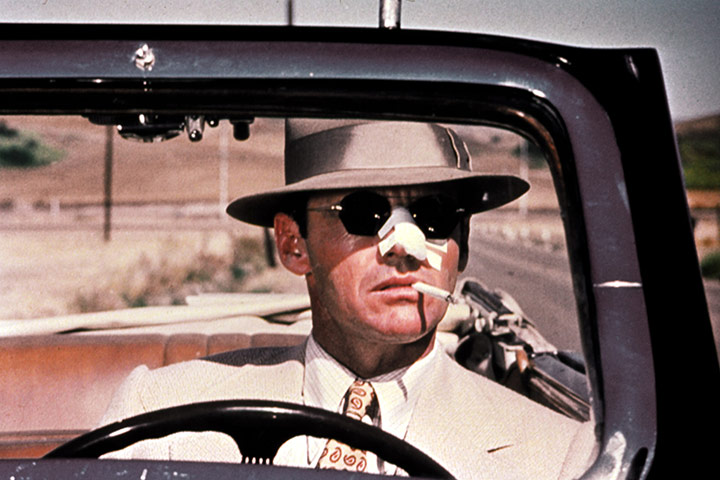
While today the name of Roman Polanski has fallen from grace and his reputation holds a permanent stain, he has left a valuable legacy in the world of cinema. “Chinatown” is one of his most caustic and gut-wrenching works, narrating the misfortunes of an L.A. private investigator who was commissioned to follow the head of L.A.’s water department and uncover his alleged adultery.
Taking every trope of the noir genre and pushing it to the point of perfection, the film tells a story about moral decay, where behind the façade of order and control lies the furious and uncontrollable heart of humankind, a dark place that knows no boundaries.
With the end of the film, the spectator is left with a profound powerlessness and frustration toward all the evil that goes unpunished. “Forget it Jake, it’s Chinatown” is the last line of dialogue in the film, and it perfectly summarizes that feeling.
13. The Night of the Hunter (1955, Charles Laughton)
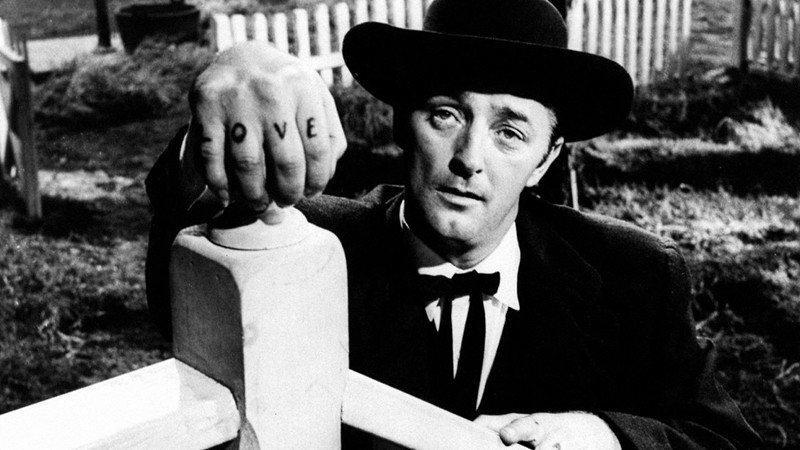
The fight between good and evil, right and wrong, light and darkness, is deeply embedded into the human consciousness; for all of us see the day being replaced by the night, we’ve seen love and hate, and each of our lives will end in death.
While this dialectic view of the world is more a part of cultural heritage than a metaphysical truth – most forms of Oriental spirituality reject the concept of dualism – the clash of the opposites permeates in everything we do, and this is the basis of the masterpiece named “Night of the Hunter,” directed by actor Charles Laughton in 1955.
It tells a story of purity and corruption, of faith and money, of a wolf who feeds off the innocence and ingenuity of those who trust him. The structure of the film might seem a bit simplistic in the sense that it resembles a bible story meant to make kids fearful of that which is thought to be evil. But that’s only on appearance, for the film is quite sophisticated, and the nuances hidden within the symbolism of the film show a very mature knowledge of human condition, showing, for instance, how religious fanaticism can both empower a person or make them surrender their will to those who appear to be superior.
14. Bicycle Thieves (1948, Vittorio De Sica)
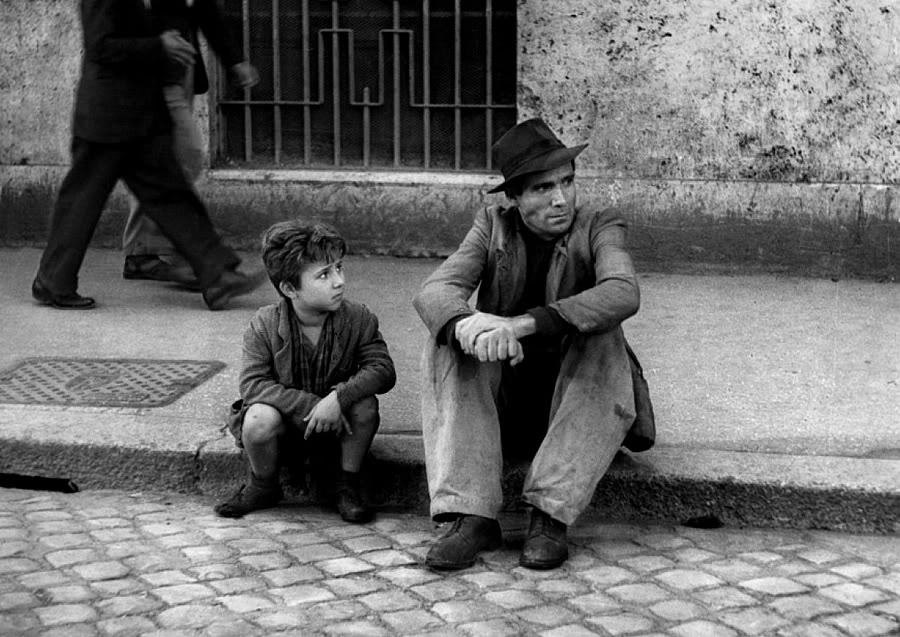
A good film is always a reflection of its place and time, a response to the environment that spawned it, a cry that comes directly from the depths of the human heart, and every major event in our history shapes the way we make films. This can be clearly seen in Vittorio De Sica’s “Bicycle Thieves,” a heartbreaking story set in postwar Italy where people are poor and abundant, jobs are lacking, and every single person is desperate and hungry.
In this bleak landscape, Antonio manages to get a job hanging up posters throughout Rome, for he needs a bike – an expensive and rare vehicle at that time and place. Tragically, during his first day at his new job, someone steals his bike, and he and his son go walking through the entire city searching for it. At the end of the day, desperate and worn out, he sends his son away and steals a bike.
“Bicycle Thieves” shows a discouraging world with compassion and tenderness; it doesn’t judge the actions of the characters, for it understands that actions are not always as important as the events and circumstances that trigger them. Rather than an apology of crime, “Bicycle Thieves” is a tender love letter for the poor and the disenfranchised, for those who have been forced into crimes they didn’t wish.
15. A Clockwork Orange (1971, Stanley Kubrick)
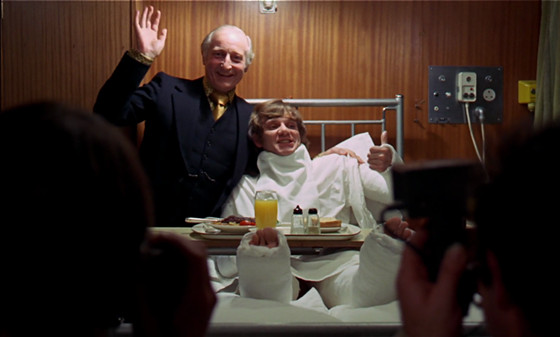
As one of the most revered films by one of the most revered directors in cinema history, “A Clockwork Orange” has been widely seen, studied and praised. And while the film was crafted in a masterful way in every aspect, it would be naïve, when talking about its popularity, to ignore the weight of its seemingly gratuitous “ultraviolence” and its unkempt animal vitality.
The film revolves around Alex, a young man living in a dystopian city run by violent gangs in constant conflict. One of the central themes of the film is the dark pole of authority and government, that which wants to control everything around and that reacts violently against any sort of rebellious behavior.
In this setting, Alex, the leader of a gang, is captured by the police. While in jail he is proposed to participate in what is called the “Ludovico technique,” which would psychologically condition him to feel physically ill whenever thoughts of violence appeared in his mind, thus removing from him his free will, and taking away the need for moral judgment.
The architecture of the setting – manifestations of the brutalism and socialist expressionism movements that spawned in the second half of the last century in communist countries – serves to emphasize the oppressive nature of the world in which the story develops, huge masses of concrete as overwhelming and inflexible as their world, imposing their materiality in the landscape.
Author Bio: Elías García-Smith is a drifter, if you don’t see him wandering around New York City or Mexico City, he is probably watching a movie somewhere. His love for cinema started when he saw Jodorowsky’s ‘El Topo’ as a child, and he hasn’t stopped watching movies since then. He spends his spare time dreaming about the films he would like to make.